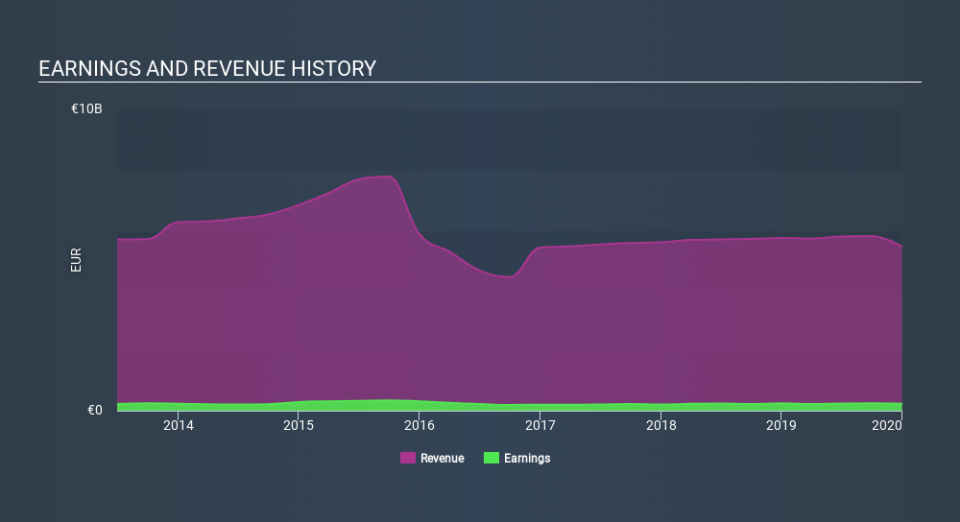UNIQA Insurance Group AG (VIE:UQA): Does The Earnings Decline Make It An Underperformer?

In this article, I will take a look at UNIQA Insurance Group AG's (WBAG:UQA) most recent earnings update (31 December 2019) and compare these latest figures against its performance over the past few years, along with how the rest of UQA's industry performed. As a long-term investor, I find it useful to analyze the company's trend over time in order to estimate whether or not the company is able to meet its goals, and eventually grow sustainably over time.
See our latest analysis for UNIQA Insurance Group
How Well Did UQA Perform?
UQA's trailing twelve-month earnings (from 31 December 2019) of €232m has declined by -4.5% compared to the previous year.
Furthermore, this one-year growth rate has been lower than its average earnings growth rate over the past 5 years of -6.6%, indicating the rate at which UQA is growing has slowed down. Why could this be happening? Well, let’s take a look at what’s going on with margins and if the whole industry is feeling the heat.
In terms of returns from investment, UNIQA Insurance Group has fallen short of achieving a 20% return on equity (ROE), recording 7.0% instead. Furthermore, its return on assets (ROA) of 1.0% is below the AT Insurance industry of 1.3%, indicating UNIQA Insurance Group's are utilized less efficiently. And finally, its return on capital (ROC), which also accounts for UNIQA Insurance Group’s debt level, has declined over the past 3 years from 1.3% to 1.2%. This correlates with an increase in debt holding, with debt-to-equity ratio rising from 21% to 28% over the past 5 years.
What does this mean?
Though UNIQA Insurance Group's past data is helpful, it is only one aspect of my investment thesis. In some cases, companies that experience an extended period of decline in earnings are undergoing some sort of reinvestment phase in order to keep up with the latest industry expansion and disruption. You should continue to research UNIQA Insurance Group to get a more holistic view of the stock by looking at:
Future Outlook: What are well-informed industry analysts predicting for UQA’s future growth? Take a look at our free research report of analyst consensus for UQA’s outlook.
Financial Health: Are UQA’s operations financially sustainable? Balance sheets can be hard to analyze, which is why we’ve done it for you. Check out our financial health checks here.
Other High-Performing Stocks: Are there other stocks that provide better prospects with proven track records? Explore our free list of these great stocks here.
NB: Figures in this article are calculated using data from the trailing twelve months from 31 December 2019. This may not be consistent with full year annual report figures.
If you spot an error that warrants correction, please contact the editor at editorial-team@simplywallst.com. This article by Simply Wall St is general in nature. It does not constitute a recommendation to buy or sell any stock, and does not take account of your objectives, or your financial situation. Simply Wall St has no position in the stocks mentioned.
We aim to bring you long-term focused research analysis driven by fundamental data. Note that our analysis may not factor in the latest price-sensitive company announcements or qualitative material. Thank you for reading.

 Yahoo Finance
Yahoo Finance 
